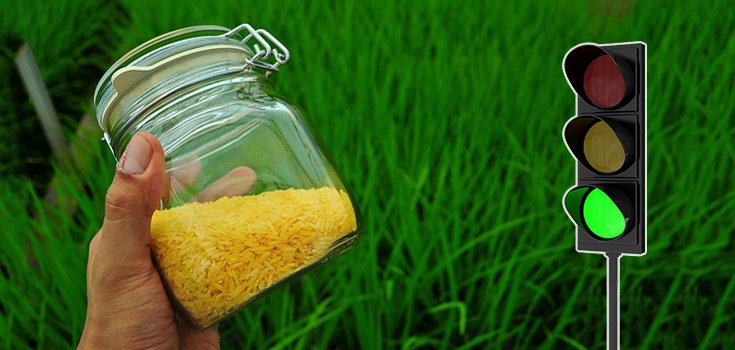The FDA Has Approved GMO Golden Rice to Enter the U.S. Food Supply

Two decades ago, genetically modified (GM) golden rice was touted as a way to save the world’s starving children. The hype didn’t last very long, however. It didn’t save any lives, farmers didn’t grow it, and nobody ate it. But in May, golden rice won the approval of the U.S. Food and Drug Administration (FDA), with the agency declaring it safe to eat.
Golden rice, one of the oldest GMO crops, initially won high praise because it was engineered to produce vitamin A (beta-carotene), which would help children in poor countries get the required dose of the vitamin. About 250,000 to 500,000 children go blind each year from a lack of the vital nutrient.
Read: “Miracle” Golden Rice Could Cause Birth Defects, Warns Indian Scientists
Researchers began modifying rice DNA in 2000, and it won overwhelming support from the Rockefeller Foundation and the Bill and Melinda Gates Foundation, both of which funded its progress. Even Pope Francis gave the GMO crop his blessing.
The U.S. is the 4th nation to approve golden rice, and more could follow. The U.S. is part of an international body that forms recommendations about food safety that other countries can adopt if they lack their own equivalent of the FDA.
Still, it could be a tough sell for the other 168 countries that chime in about international food standards. Golden rice crops aren’t necessarily field-ready, according to a 2016 Mother Jones report. The plants aren’t as efficient as they could be and don’t yield the crops that regular rice does, so many farmers might see golden rice as a waste of time and money.
And, there’s this…
The news media has been celebrating the FDA’s embrace of golden rice and the fact that more countries could also approve it, still framing golden rice as a savior of sick and dying children. Don’t be fooled.

Read: Farmers of the Philippines Say “No Way” to GMO Rice
The FDA itself says that no health claims can be made about golden rice. The amount of beta-carotene contained in golden rice is so minuscule that the crop fails to qualify for a nutrient claim. [2]
In a letter to the International Rice Research Institute (IRRI), the FDA wrote:
“Based on the safety and nutritional assessment IRRI has conducted, it is our understanding the IRRI concludes that human and animal food from GR2E rice is not materially different in composition, safety, or other relevant parameters from rice-derived food currently on the market except for the intended beta-carotene change in GR2E rice.”
The letter goes on to say that “the concentration of β-carotene in GR2E rice is too low to warrant a nutrient content claim.”
It seems that golden rice was much ado about nothing.
Source:
[1] Futurity
